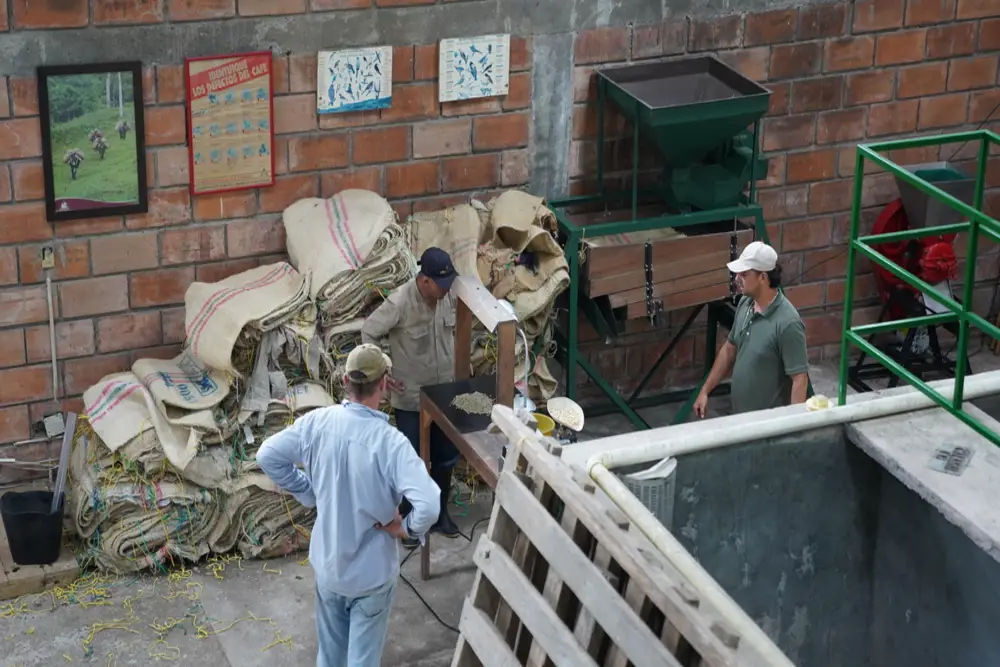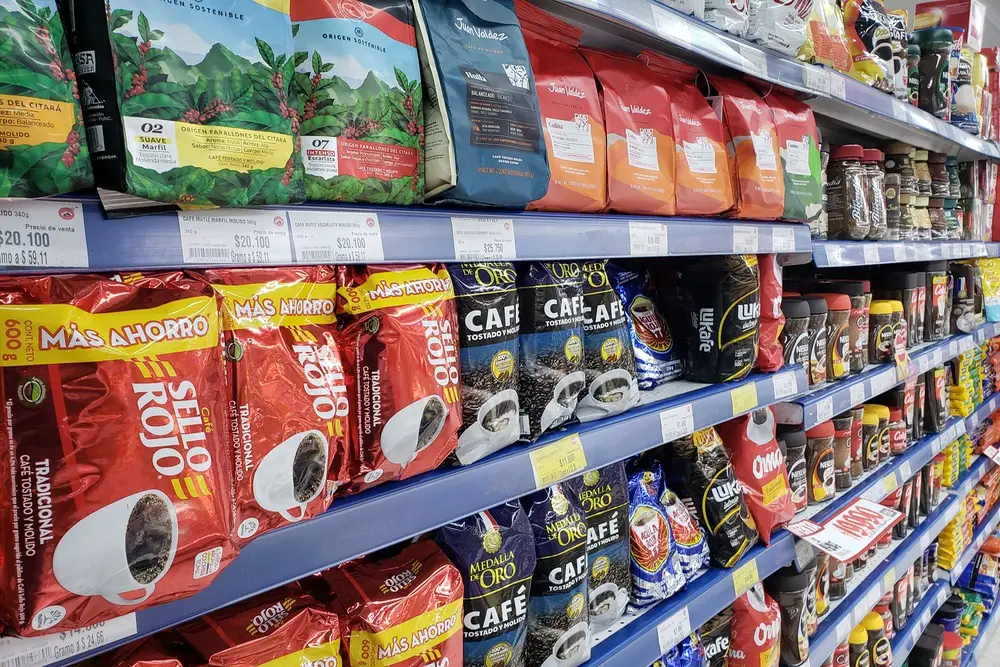The coffee business is one of the world’s leading industries. Many countries are now involved in the import and export of coffee products. The reason for this is the immediate and easy availability of coffee products.
Table of Contents
What does a coffee importer do?
A coffee importer buys coffee beans for a roaster, distributor, wholesaler or retailer. As a rule, he travels to different coffee-growing countries to observe the cultivation and harvesting of the different farmers and to assess the quality. In this role, his primary role is to source high-quality coffee beans from reliable sources, negotiate a price with the grower, and build relationships with the farmers and traders.
Before making a purchasing decision, you must also evaluate the shipping and handling costs and other variables.
How do I become a coffee buyer?
Qualifications required for the coffee buyer profession include knowledge of the coffee industry and business acumen. You also need good negotiation skills. As you deal directly with growers and traders from other countries, it can be helpful to be bilingual.
Before starting this type of business, you should do your due diligence in the form of market research, economic and cost analysis, and of course, feasibility studies. This allows you to build an appropriate network of suppliers and distributors to get the business off the ground.
Define the goal
Every business, no matter how big or small, must have a specific goal or vision. It is the goal that sets the path for the company and the products it offers. It also gives direction to entrepreneurs when it comes to limiting or expanding production and other aspects of the business. With a defined plan, a company can rise and make a profit.
For example, chances are there is a long distance between your business and the farm you want to buy from, and neither of you own a boat or plane to transport the coffee. The most realistic and practical option is to bring the coffee on board a ship. You need to find a shipping company to load your coffee into a shipping container and then pay to have your coffee transported from the seller to the carrier. Once the coffee arrives in your country, you have to pay the port to unload the coffee and find a customs broker to get the coffee through customs. Finally, you organize the physical collection of the coffee from the port to your front door.
Understand the market
Coffee is a universal product. However, diverse and unique coffee products can be made to suit all ages and coffee needs around the world.
Anyone who wants to open a coffee import business will certainly have a hard time. Therefore, it is advisable to be more innovative when offering coffee products.
Understand the industry
Statistics show that more than 2.25 billion cups of coffee are consumed worldwide every day and that more than 90% of coffee production takes place in developing countries, mainly in South America, while consumption mainly takes place in developed countries.
The two economically most important types of coffee are Arabica and Robusta. Between 75% and 80% of the coffee produced worldwide is Arabica and 20% is Robusta.
The coffee import business is a very diversified industry in which there are many players, which explains the competition in this area.
Conducting market research
There is a wide range of customers in the coffee import business. Your target market cannot be limited to a single group of individuals or businesses, but rather all homes, offices and businesses in your area.
Therefore, if you’re thinking about starting a coffee import business, you should think broadly about your target audience. You should include retail stores and any outlets that offer coffee in various forms in and around where your business is located.
Development of partners in the country of origin
Before we talk about the logistical part abroad, we need to make sure that the right people are present in the country of origin. Many imagine that direct trade relationships consist of two parties: a small coffee farmer and a micro roaster.
In reality, few business relationships look like this, for one simple reason: preparing specialty coffee for export requires careful drying, hulling and sorting – processes that are difficult and costly to accomplish on your own. Therefore, unless your coffee comes from a wealthy farm that has all the equipment to make it, there are usually multiple parties involved in your coffee’s value chain.
Once you have the right people at the point of origin, you can close the deal in the form of a sales contract. This contract should be drawn up in close cooperation with all partners and should contain details about the quality of your coffee, the quantity, the agreed price, the packaging material and of course how you want to transport the coffee.
The budget
The coffee business, as a rule, does not require large capital. However, if you want to start importing coffee products, you have to invest a higher amount. Because production and processing are expensive.
Additional costs are incurred when selling and distributing coffee products in international trade. In addition to transport, distribution and packaging costs, licensing and other formalities also require financing. Funds are also needed for advertising.
Anyone who is active in the import business must invest in broad-based advertising. Investing in a business website is a wise decision. Although it is an additional expense, it has a cumulative advertising effect.
When it comes to financing a business, one of the most important factors is creating a good business plan. When you have a good and viable business plan in place, you don’t have to go through the trouble of convincing your bank, investors, and friends to invest in your business.
Here are some of the options you can consider when looking for seed capital for your coffee import business:
- Raising money from personal savings and from the sale of personal stocks and real estate
- Raising money from investors and business partners
- Sale of shares to interested investors
- Applying for a loan from your bank
- Presentation of your business idea and application for grants and start-up financing from donor organizations and angel investors
- Taking out low-interest loans from family members and friends
- Fundraising from investors and business partners
Business Advice
The coffee import export business is a serious business. New businesses often fail early due to a lack of planning and poor management skills. It is therefore important to seek advice from experts. With their help, you can better plan what business moves you want to take.
Legal Requirements
This business is subject to stricter government guidelines and regulations. Anyone engaging in this type of business should be well acquainted with the national laws of the foreign country and international trade laws. Knowing these laws makes it easier to obtain the necessary permits and licenses to import and export goods.
These are some of the basic legal documents you should have if you want to legally run your own coffee import business in the United States, but they are largely transferrable to other countries:
- Deed of Incorporation
- Business license (import license)
- Taxpayer Identification Number/Tax Identification Number
- Business plan
- Food and Beverage Retailer Certificate
- Employee Handbook
- Operating agreement for corporations
- Insurance policy
- Online Terms of Use (if also operated online)
- Online Privacy Policy (for online payment gateway)
- Articles of Association
- Memorandum of Understanding
Conclusion
If you find a reliable and trustworthy coffee supplier, your venture will be a success. When importing, you must adhere to the principles of state organizations.
In most cases, the shipping costs are covered by the supplier, but depending on the contract only until the goods arrive at the port of destination. Pay attention to the country’s customs declarations, coffee import duties, coffee tax and other requirements.



